Enrico Caruso, born on 25 February 1873 in Naples, was considered the greatest tenor of the century. For one, that assessment is based on the exceptional appeal of his voice, “fusing the full burnished timbre of a baritone with a smooth and silken finish of a tenor.”
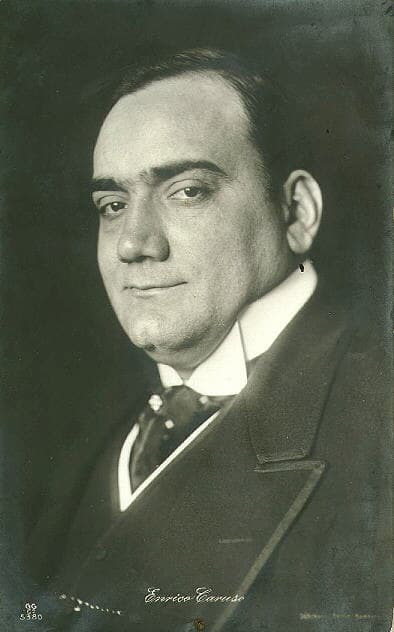
Enrico Caruso, 1910
In middle range, Caruso achieved a “melting sensuality, now in caressing and elegiac tones, now in outburst of fiery, impetuous passion.” As a scholar writes, “The clarion brilliance of his high notes, his steadiness, his exceptional breath control, and his impeccable intonation, formed a unique instrument.” His phenomenal voice none withstanding, Caruso was also one of the first examples of a global media star. He appeared 863 times with the New York Metropolitan Opera, including extended tours overseas, and he made well over 260 sound recordings. Not to be outdone, Caruso also appeared in two motion pictures in 1918. Caruso biographers attribute his fame not only to his voice and musicianship, “but also to a keen business sense and an enthusiastic embrace of commercial sound recording, then in its infancy.”
Enrico Caruso Sings Leoncavallo’s Pagliacci, “Vesti la giubba”
His Childhood Years
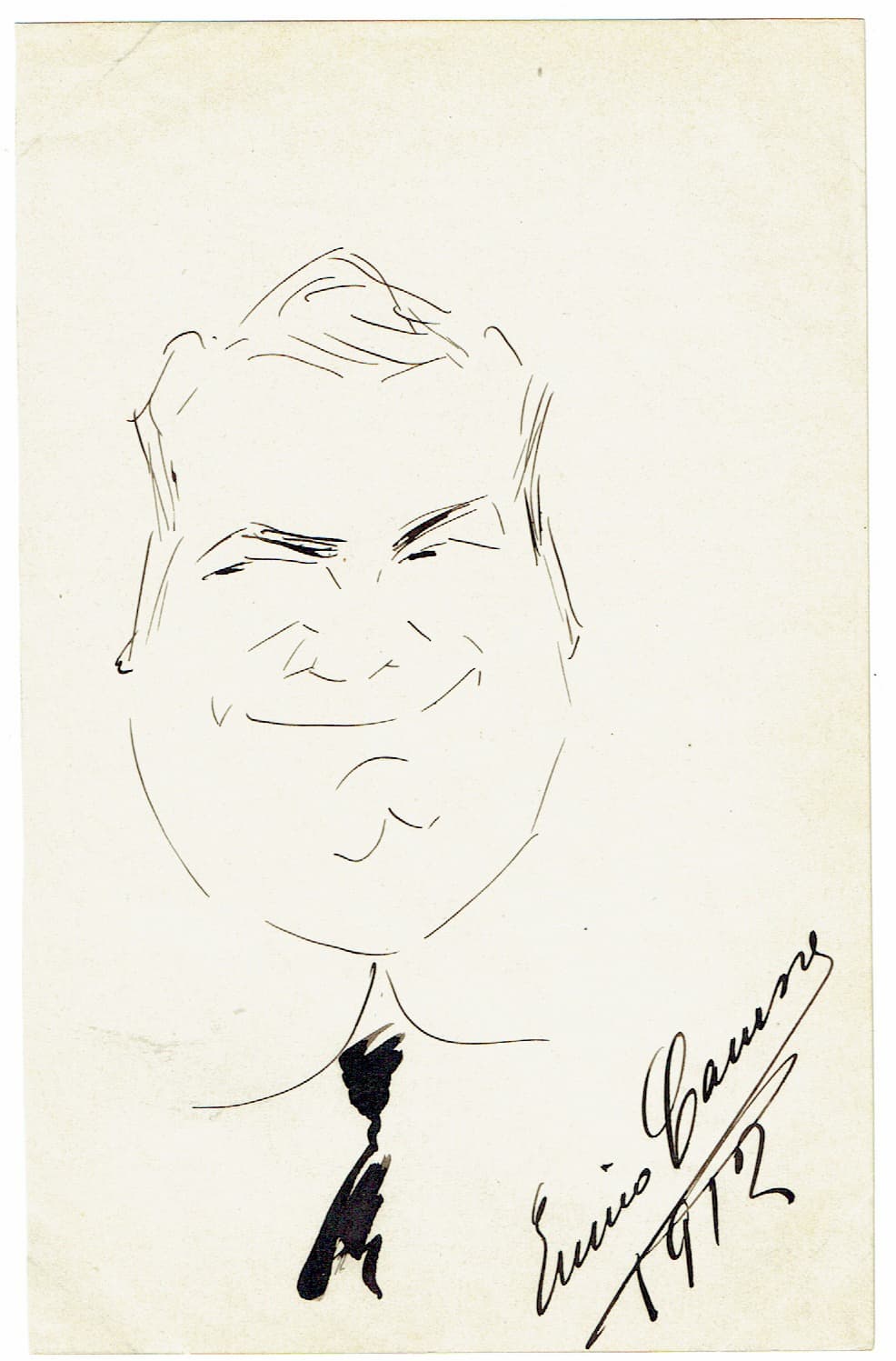
Enrico Caruso’s self-caricature in 1912
Caruso was born in a thickly populated working-class neighborhood in Naples during a cholera epidemic. There has been much discussion as to the actual number of children in the Caruso household, with the tenor later in life claiming that his mother had given birth to twenty-one children. This appears to have been an exaggeration, but whatever the correct number might have been, Caruso’s father Marcellino was said to have been a heavy drinker, and he worked as a mechanic in a factory. His mother Anna Baldini “was a kind and gentle woman, whose health had steadily deteriorated with each of her many pregnancies.” Young Enrico was “a good-natured boy, and although he was a lively and noisy child, showed an unfailing sense of responsibility.” Initially homeschooled by his mother, Enrico dreamt of being a sailor but his father was adamant that the boy should adopt his father’s trade. At age 11, he became an apprentice to a mechanical engineer who constructed public water fountains, and he later worked alongside his father at the factory.
Giuseppe Verdi: La traviata, Act I: Libiamo, ne’ lieti calci, “Brindisi” (Drinking Song) (Alma Gluck, soprano; Enrico Caruso, tenor; New York Metropolitan Opera Chorus; New York Metropolitan Opera Orchestra; Giulio Setti, cond.)
“It was as natural for me to sing as to play.”
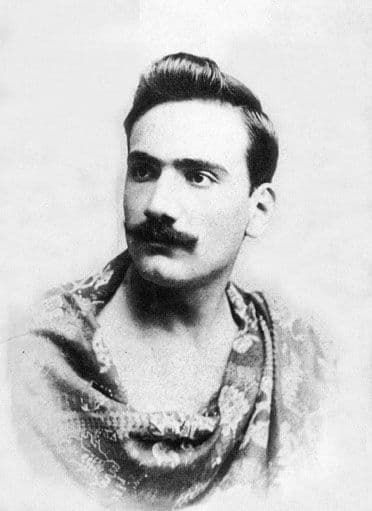
Enrico Caruso in Puccini’s Tosca
At his mother’s insistence, Enrico attended school for a time but he was quickly bored with regular subjects. However, the local priest discovered that Enrico had an extraordinarily rich contralto voice, and that the boy loved to sing. Soon he became the principal soloist in the school choir, and he was hired to perform at weddings, informal concerts, and social occasions. As Caruso later remembered, “It was as natural for me to sing as to play. I came from a singing family. My mother had a beautiful soprano voice, very high and clear, like a flute; my father had a deep bass.”
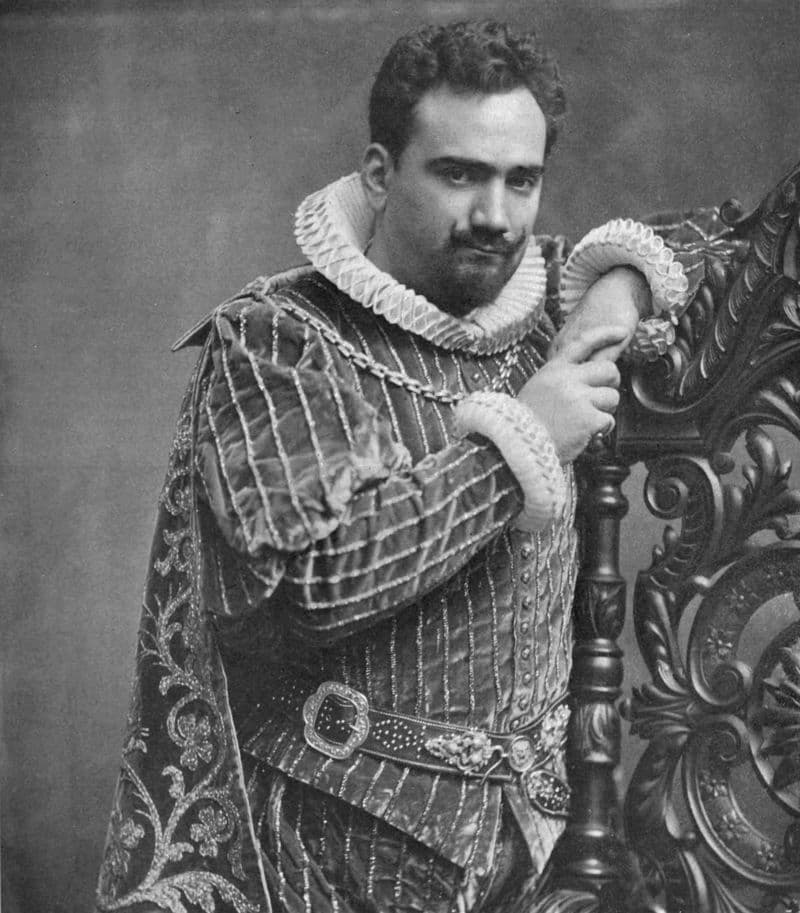
Enrico Caruso as the Duke in Verdi’s Rigoletto
After the death of his mother, Enrico worked as a street singer in Naples, performing at cafes and special occasions. Although Caruso took occasional lessons, he had no formal musical education. Forced to continue his work as a mechanic in order to financially help his family, Caruso was unable to devote full time to his musical training. In addition, he was soon called up for compulsory military service but continued his lessons with Guglielmo Vergine after his discharge. And in the early autumn of 1894, Caruso stepped up to his first professional audition at the newly remodeled Teatro Mercadante in Naples.
Paolo Tosti: Ideale (Enrico Caruso, tenor)
A Disastrous Beginning
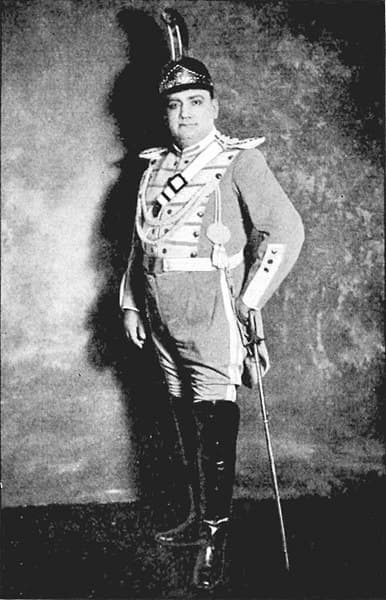
Enrico Caruso as Don Jose in Bizet’s Carmen
The young tenor was very nervous, and it was agreed that Caruso should study the role of “Wilhelm Meister” in Ambroise Thomas’s Mignon, which would serve as his stage debut. After he had studied his role, Caruso was called, together with the other singers, to the piano rehearsal. The conductor Giovanni Zuccani had arrived, and “Caruso’s great sensitivity and the nervous excitement of finding himself in the company of so many experienced singers had almost completely paralyzed both his mental faculties and his throat. He did everything wrong, he forgot his lines, he missed his cues, he sang out of tune. It was, in short, a real disaster. The kindly Maestro Zuccani was patient for a long time and did his best to calm the tenor. But it was useless. Caruso was in a complete state of amnesia, and finally Zuccani, no longer able to continue, arose from the piano and explained that it is impossible to present him on the stage in such a state.” Caruso, apparently, left the audition without a comment. Such a disastrous beginning might well have been the end of a promising career, but only a couple of months later he did make his professional stage debut at the Teatro Nuovo in Naples in the opera L’Amico Francesco, by Mario Morelli. And thus it came to pass, that Caruso made his professional stage debut on 15 March 1895.
For more of the best in classical music, sign up to our E-Newsletter
Caruso Sings Donizetti’s L’elisir d’amore, “Una furtive lagrima”

I thought Schipa was the greatest singing this until I heard Caruso’s interpretation. A miracle voice nobody greater than HE. Nobody !